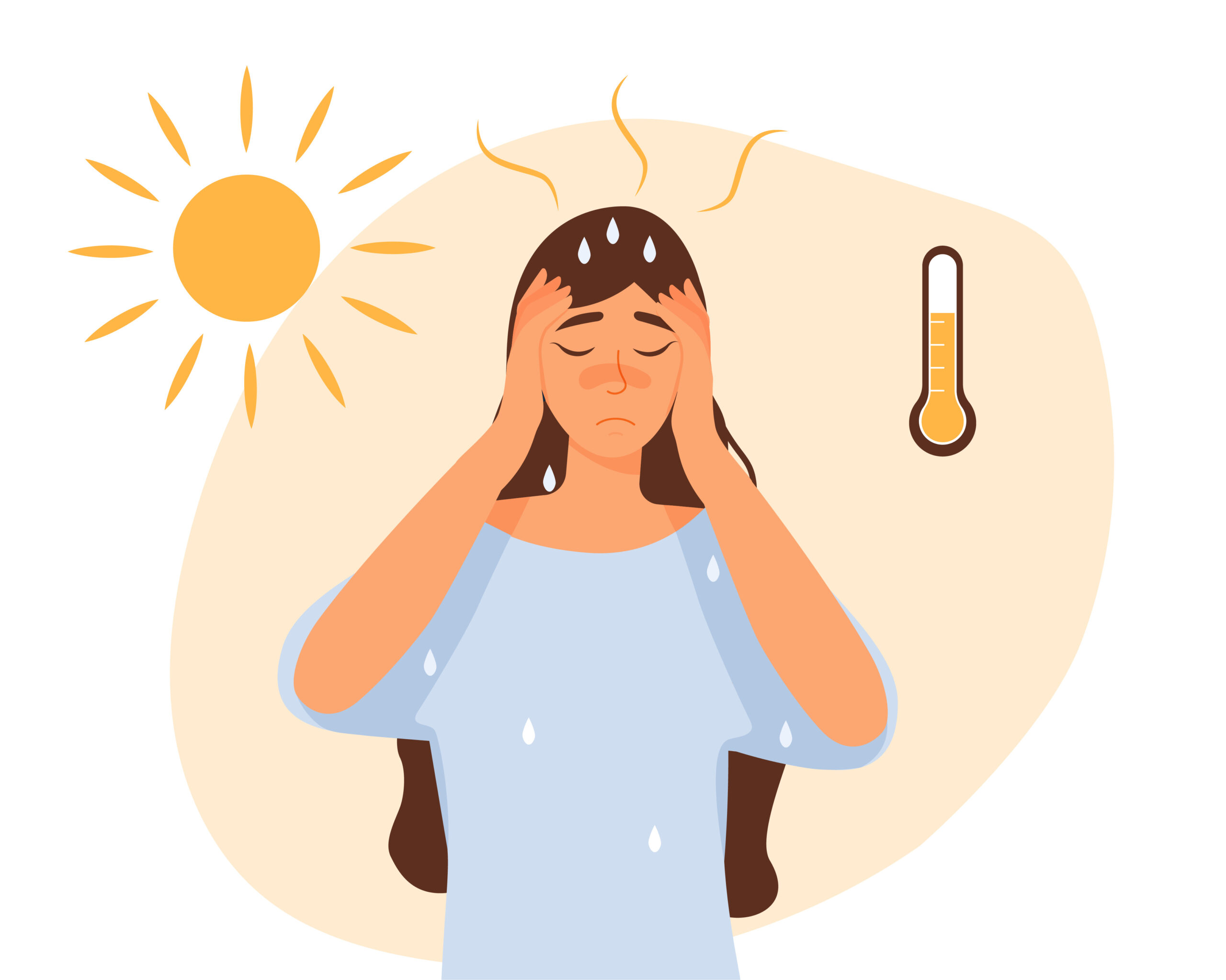
Heat and humidity may make you feel sick and can be dangerous, so pay attention to the signs.
You may love the feeling of the sun shining down on you or the toasty temperatures at this time of year, but it’s important to pay attention to signs that the heat is getting the best of you. Heat-related illnesses are more common than you think, especially if you have certain chronic health conditions, and can be extremely dangerous. The good news is that they are also preventable, as long as you know what to look out for and what to do if you start experiencing symptoms.
Here are common symptoms of three heat-related illnesses, as well as what to do if you notice them.
Heat Cramps
This condition most often occurs during exercise. It is typically accompanied by fatigue, thirst and heavy sweating.
Common symptoms include:
- Muscle pain or spasms during exercise
What to do if you have symptoms:
- Stop whatever activity you’re doing until cramps go away
- Move to a cool place
- Drink water or sports drinks with electrolytes
If your cramps last longer than an hour, you have heart problems or you’re on a low-sodium diet, get medical help.
Heat Exhaustion
This condition may come on suddenly or progress over time. It is most commonly due to periods of prolonged exercise or physical activity, especially if high humidity accompanies high temperatures.
Common symptoms include:
- Heavy sweating
- Cold, pale or clammy skin
- Weak, rapid pulse
- Nausea or vomiting
- Muscle cramps
- Fatigue
- Weakness
- Dizziness
- Headache
- Fainting
What to do if you have symptoms:
- Stop all activity and rest
- Move to a cool place
- Loosen clothing
- Put wet cloths on your body or take a cool bath (not too cold)
- Drink water or sports drinks with electrolytes
If your symptoms last longer than an hour or get worse, or if you are throwing up, get medical help.
Heat Stroke
Heat stroke is a medical emergency. If a person has these symptoms, call 911 right away. While waiting for emergency help, move the person to a cooler place and help lower their body temperature with cool cloths or a cool bath (not too cold), but do not give the person anything to drink.
Common symptoms include:
- High body temperature (103oF or higher)
- Hot, red, dry or damp skin
- Fast, strong pulse
- Headache
- Dizziness
- Nausea
- Confusion
- Loss of consciousness
What to do if you or someone you’re with has symptoms:
- Call 911
- Move person to a cooler place and help lower body temperatures with cool cloths or a cool bath
- Do not give the person anything to drink
The Heat and Your Heart
If you have heart disease or high blood pressure, the heat may affect you more quickly and the result of being overheated may be more serious. When temperatures and humidity are high, more blood flows to your skin to cool your body down. This can cause you to circulate twice as much blood per minute than you normally would and can make your heart beat faster.
When it’s hot out, especially if you’re sweating a lot, it can lower the amount of fluid in your body. This can lead to dehydration and can interfere with your body’s ability to cool off, which can be dangerous for anyone, especially those with heart conditions.
Be sure to drink plenty of fluids and take extra precautions when it’s hot to avoid becoming overheated. Remember that even if you used to feel fine in the heat, age, heart disease, high blood pressure and other chronic conditions may cause your body to be less tolerant of high temperatures and humidity than you used to be.
Copyright 2024 © Baldwin Publishing, Inc. Health eCooks® is a registered trademark of Baldwin Publishing, Inc. Cook eKitchen™ is a designated trademark of Baldwin Publishing, Inc. Any duplication or distribution of the information contained herein without the express approval of Baldwin Publishing, Inc. is strictly prohibited.
Date Last Reviewed: May 14, 2024
Editorial Review: Andrea Cohen, Editorial Director, Baldwin Publishing, Inc. Contact Editor
Medical Review: Perry Pitkow, MD
Learn more about Baldwin Publishing Inc. editorial policy, privacy policy, ADA compliance and sponsorship policy.
No information provided by Baldwin Publishing, Inc. in any article is a substitute for medical advice or treatment for any medical condition. Baldwin Publishing, Inc. strongly suggests that you use this information in consultation with your doctor or other health professional. Use or viewing of any Baldwin Publishing, Inc. article signifies your understanding and agreement to the disclaimer and acceptance of these terms of use.